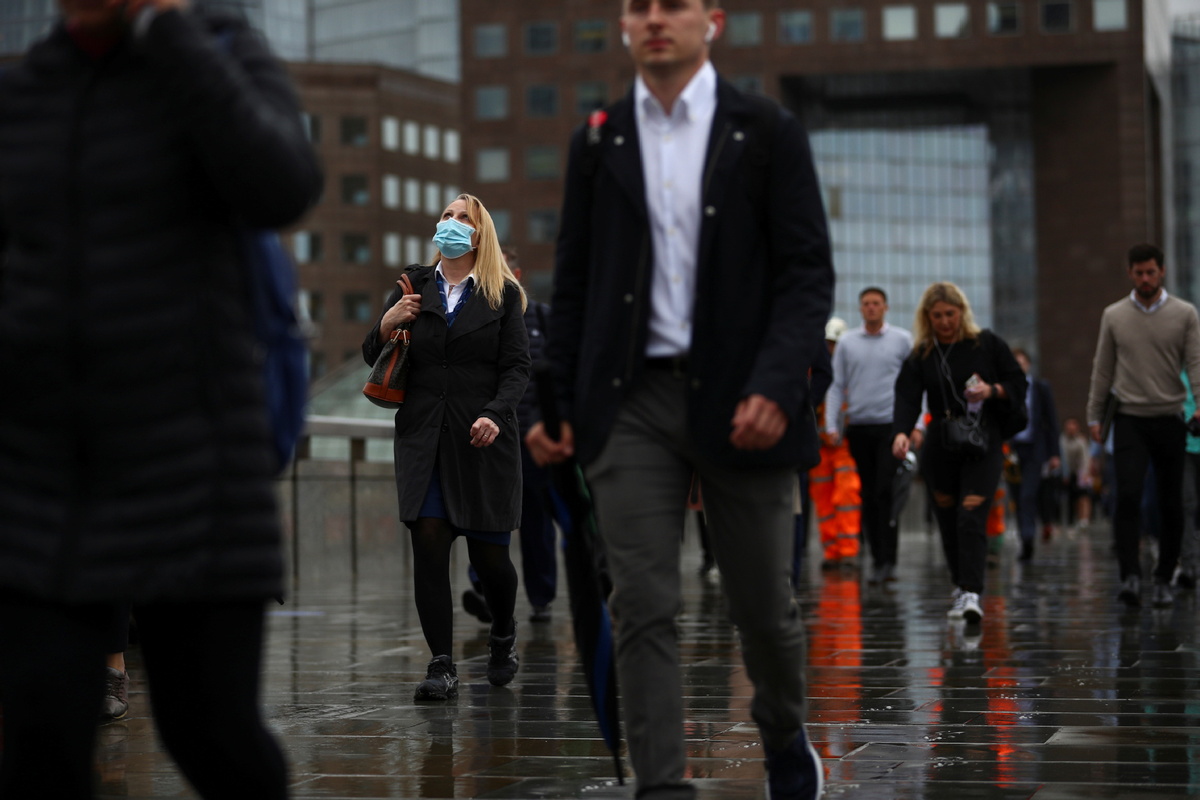Firms warned over virus work stress
By BO LEUNG in London | China Daily Global | Updated: 2021-07-16 09:41

The COVID-19 pandemic has changed the way a lot of people work in the United Kingdom, with lockdown restrictions forcing many to work from home or in a new socially distanced office environment.
Ajay Kumar, a business consultant for an IT management consultancy, said there was no support from his work at the start of lockdown and he feared his job was at risk due to the pandemic, which added to his work stress levels.
"There was no check-in from my immediate supervisor on how their associates are doing in general," he said.
"My stress was aggravating as I was living by myself and had no-one to talk to."
Kumar also felt he could not speak up at work because he feared he would be looked down on.
After a month of mental stress, he eventually had counseling sessions, which helped him manage his anxiety.
"There were frequent occasions where I felt overwhelmed or exhausted from work. In order to overcome this, I inculcated behavior change in my daily routine to ease my stress and balance my lifestyle," he said.
This included video calls with friends and family, meditation, exercise and writing in a journal, and he said his employer eventually introduced virtual social events for his team, which has helped.
Whether going to the office or working from home, workers have had to adapt to constant changes to rules and restrictions during the pandemic, as well as learn how to use new technologies and find new ways of communicating and collaborating with colleagues.
Erika Kispeter, a senior research fellow at the Warwick Institute for Employment Research, said: "Considering the changes that people had to make in their personal lives… and the uncertainty triggered by the pandemic, it would be surprising if people's mental health would not be affected. Exhaustion may be a symptom of burnout, along with detachment and reduced efficacy."
There are a number of factors that can cause burnout, such as work-related pressures and stress, lack of support from management and colleagues, and poor work-life balance.
According to a study by insurance company Aviva, which looks into the UK's changing relationship with work, some 44 percent of employees feel they can never switch off from work, and 39 percent of respondents feel their employers do not encourage them to do so outside of their contracted hours.
Lockdown has highlighted the issue of worker stress, but many companies have policies in place to promote well-being and work-life balance.
Law firm Gowling WLG already had a support program for its workers and when the pandemic hit, tools were in place, ready to help employees with well-being and stress.
"With stress and mental health being so intrinsically linked, our team of mental health and domestic violence champions came into their own as a dependable and reliable source of support, especially during the early days of lockdown when there was still so much uncertainty," said Emma Dennis, diversity and inclusion manager at Gowling WLG. "They continue to offer a listening service and are a critical insight into the experiences of our people raising common themes we can then proactively act upon."
Dennis added: "Giving our people support and guidance, as well as directing them to third-party information around combatting stress, general mental and physical health via our digital well-being hub has been key in providing resources and support accessible as needed… the pandemic has provided an unprecedented opportunity for our networks to connect more of our people and offer a wider remit of topics for people to discuss than ever before."
Last month, it was reported that dating app Bumble gave its 700 global workers a week of paid leave to recover from burnout.
"The approach taken by Bumble reflects an awareness of the problem and it is very egalitarian-both of these aspects are very positive," Kispeter said. "Giving staff a week off is likely to be useful, and employees will appreciate this expression of care and support, which will likely increase job satisfaction."
However, she warned that just having a week's holiday will not be enough to help staff fully recover from burnout.
Kispeter said organizations should develop a positive culture around psychological well-being and mental health and develop meaningful initiatives and approaches that work at the individual, team and organizational level.
























